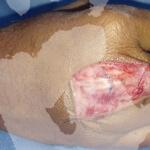Trigger Finger
What is trigger finger?
Trigger finger, also known as stenosing tenosynovitis, is a condition characterized by the inflammation of the tendon sheath in the finger or thumb, resulting in difficulty flexing or extending the affected digit smoothly. This can lead to a catching or locking sensation when attempting to move the finger.
What causes trigger finger?
Trigger finger is often caused by repetitive gripping or forceful hand activities that strain the tendons in the fingers. It can also result from underlying conditions such as arthritis, diabetes, or inflammatory diseases that affect the tendons and surrounding tissues.
What are the symptoms of trigger finger?
Trigger finger is often caused by repetitive gripping or forceful hand activities that strain the tendons in the fingers. It can also result from underlying conditions such as arthritis, diabetes, or inflammatory diseases that affect the tendons and surrounding tissues.
How is trigger finger managed non-surgically?
Trigger finger is often caused by repetitive gripping or forceful hand activities that strain the tendons in the fingers. It can also result from underlying conditions such as arthritis, diabetes, or inflammatory diseases that affect the tendons and surrounding tissues.
When is trigger finger surgery recommended?
Trigger finger surgery may be recommended if conservative treatments fail to provide relief or if the condition is severe and significantly impacts hand function. Surgery involves releasing the A1 pulley to allow for smooth movement of the affected digit.
What does trigger finger surgery involve?
Trigger finger surgery, also known as trigger finger release, can be performed as an outpatient procedure under local anesthesia. During the surgery, the surgeon makes a small incision in the palm or finger and cuts the A1 pulley to relieve pressure on the tendon, allowing for improved finger movement.
Are there any risks or complications associated with trigger finger surgery?
While trigger finger surgery is generally safe and effective, like any surgical procedure, it carries some risks, including infection, bleeding, nerve injury, stiffness, or recurrence of symptoms. However, these complications are rare, especially when the surgery is performed by an experienced hand surgeon.
How do I schedule a consultation with a hand surgeon for trigger finger treatment?
To schedule a consultation with a hand surgeon to discuss trigger finger treatment options, you can contact our office by phone or through our website. Our staff will be happy to assist you in scheduling an appointment at your earliest convenience.





